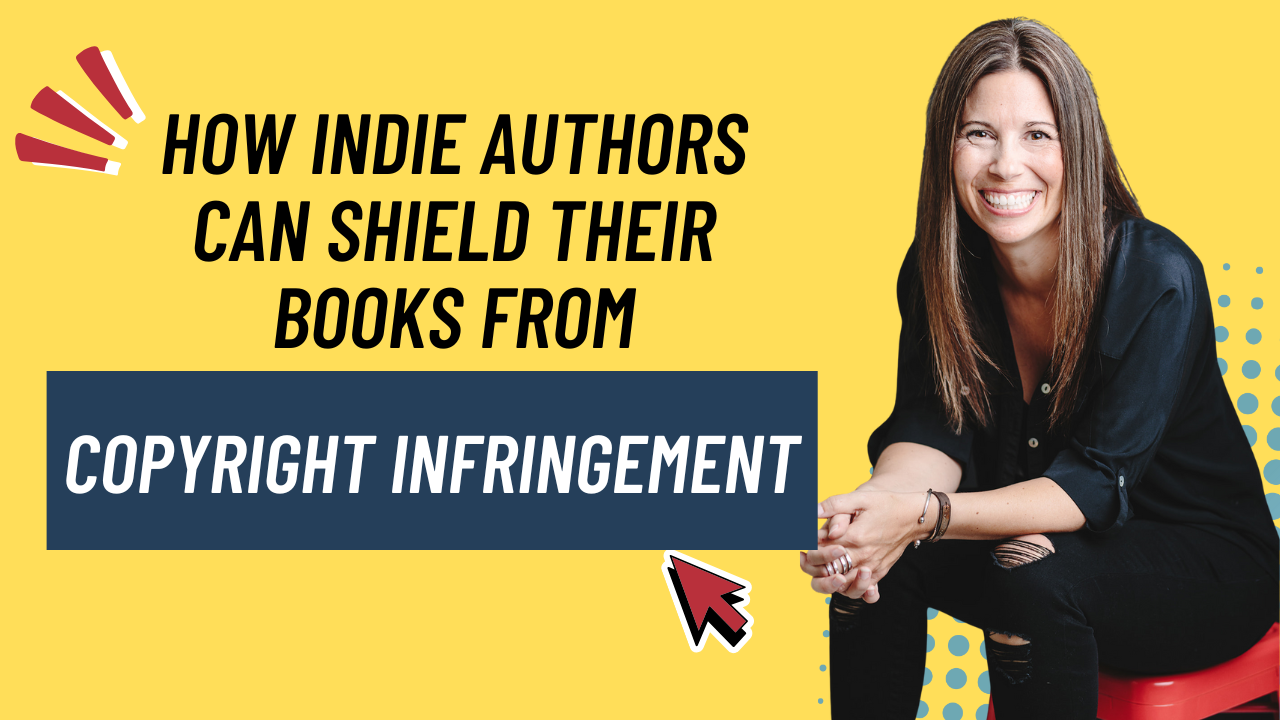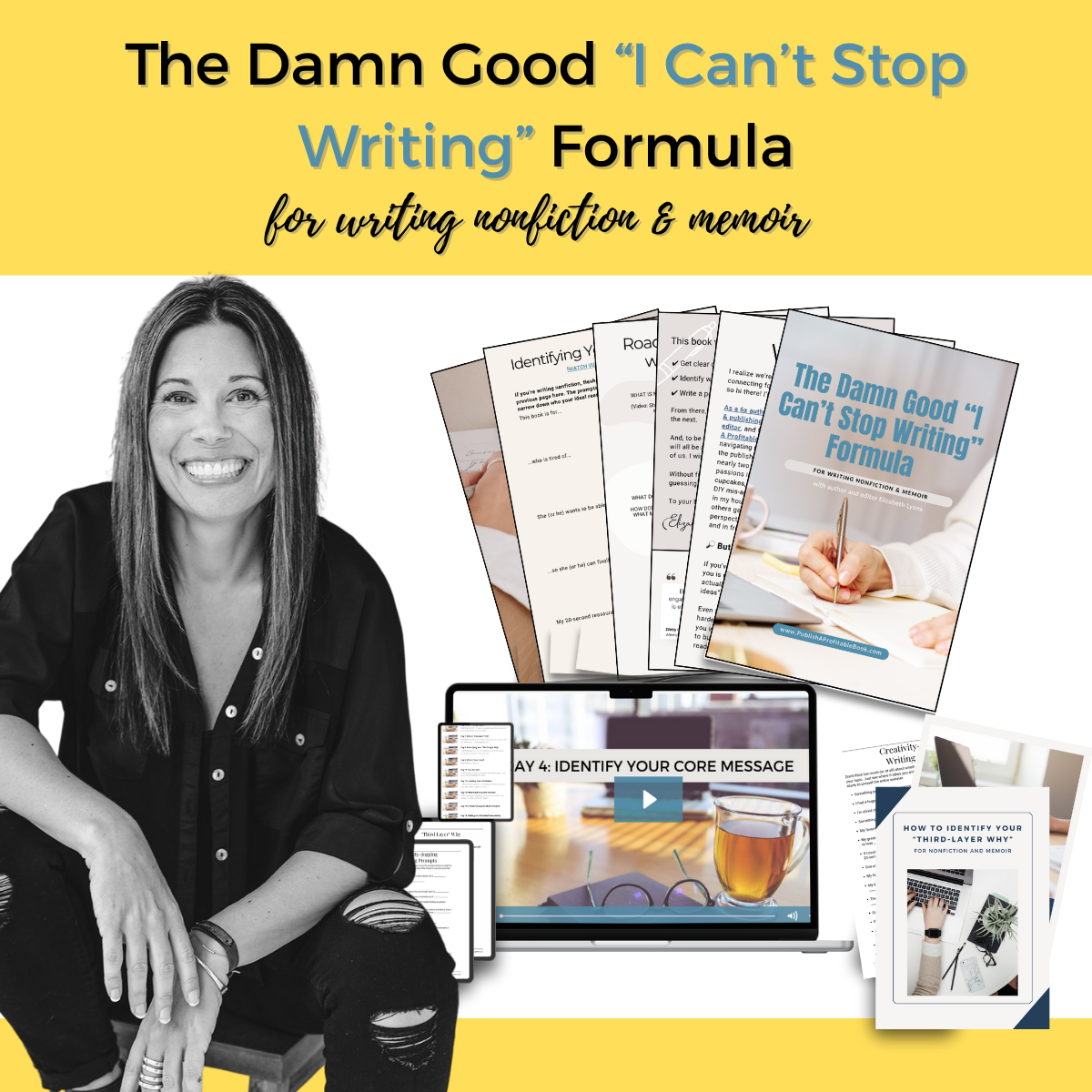Book Writing & Publishing
{The Blog}
Ep 139: How Indie Authors Can Shield Their Book from Copyright Infringement

Copyright. Piracy. LibGen. AI scraping.
If just reading that list makes you want to hide under your desk with a bottle of...something...you’re not alone.
Indie authors are being forced to navigate a landscape that feels murkier by the day, and most of us didn’t exactly sign up to become copyright attorneys.
Unfortunately, the “poor man’s copyright” trick (mailing yourself a sealed copy of your manuscript) I used to suggest won’t do a thing to protect you in 2025.
What does matter? Understanding when and how to formally register your copyright, what that three-month filing window really means, and how to handle it when you discover your book has been pirated.
In this episode, I break down:
👉 Whether copyright registration is worth the time and money for indie authors \
👉 What to do (and what not to do) if your book shows up on LibGen or other shady sites
👉 The difference between healthy protection and exhausting paranoia
I’ll show you how to balance protecti...
Ep 126: Murder on the Page with N.L. Blandford

Thriller author N.L. Blandford isn't afraid to go dark—like, murder scene dark—and she absolutely loves it.
In this episode, she talks about writing gritty thrillers with complex villains you’ll root for and recoil from. Natasha never planned to become an author. She just wanted to cross “write a book” off her bucket list. Now she’s five books in, spanning multiple series, and shows no signs of slowing down.
We talk about:
- Why she never plots in advance (hint: her characters have strong opinions)
- Her secret weapon for book sales (spoiler: it’s not bookstores)
- Why she chose to publish “wide” to support Canadian platforms like Kobo
- What she’s loving and learning while writing a new series about a fictional mob family in Nova Scotia
- Why “show vs. tell” trips up so many new writers (and how she works through it)
CONNECT WITH N.L. BLANDFORD
Website: www.nlblandford.com
Instagram: @nlblandford
Facebook: www.facebook.com/nlblandford
Books: Bookshop.org, Amazon.com
STILL ...
Ep 117: Unconventional Ways to Promote Your Book (Without Breaking the Bank)

Ever walked past one of those cute Little Free Libraries and thought, Wonder if I could sneak my book in there? Spoiler alert: you totally can. And that’s just one of the brilliantly simple, low-cost book marketing strategies I dish out in this episode—ideas so simple many authors never even think about them!
Here’s the thing: no matter how you publish—traditionally, hybrid, or self—marketing is your job. And I know, that realization hits like a rogue wave. But before you panic-Google “best book publicist on an extremely limited budget,” take a breath. You don’t need deep pockets or an extrovert’s energy to get your book in front of readers.
In this episode, I break down ridiculously doable, budget-friendly ways to keep your book casually showing up in the world. Think: leaving copies in waiting rooms, slipping them onto airport lounge tables, or—one of my personal favorites—perching them on a pumpkin display at Trader Joe’s (because...why not?).
And for my fellow introverts who...
Ep 115: The Tortoise Strategy-How Slow and Steady Wins the Publishing Race

Publishing a book requires long-term strategy, patience, and flexibility, not magic bullets or gimmicky shortcuts. The long game is the shortcut when it comes to building a sustainable author career.
In this episode, I answer some of the questions that have come my way recently via email and Instagram DMs, including:
✅ Why does one's writing perspective often evolves from third-person past to first-person present as authors become more emotionally connected to their material
✅ How to "suss out" unsolicited offers to review your book for payment
✅ How many reviews you should accumulate on Amazon before you begin investing in Amazon advertising
✅ The best way to accumulate reviews (everything, everywhere, all at once is NOT a good strategy!)
✅ How to best use the Universal Book Link to direct readers to the appropriate Amazon store based on their location
✅ When and how to use Advanced Review Copies (ARCs) as an indie author
Awesome Email Templates for Authors
From communi...
ChatGPT Prompt: Instagram Ideas for Authors

The debate over whether to use AI (and how much) to write books is endless (truly). I, for one, choose not to use it when writing my books. I actually enjoy conjuring a great way to express that it feels like the world is ending (though I may use it to create a deserted island itinerary quite shortly!).
But something I do use AI for as an author and business owner? Jogging my creativity when it comes to new topics I could speak to or fun ways to engage fellow writers and attract new followers who I can begin to build a relationship with.
(I also recently asked ChatGPT what it could tell me about myself based on my queries to date. I didn't love how accurate its response was!)
Here's a prompt I've continued to hone to help it become more and more specific (i.e., provide me with better and better ideas) in suggesting fun ideas for my social media content.
Of course, they aren't all winners. And of course, I still modify them so they're more in my voice. But getting the ball rolling...
Ep 113: Amazon Book Sales: What’s Working (and What’s Not) with Dave Chesson

Keywords: they either fascinate you or they're the bane of your existence.
For me, it's the second.
Which is why I'm so excited to bring you this episode of the Write the Damn Book Already podcast with guest Dave Chesson, creator of Kindlepreneur, where we do an in-depth exploration of the significance of keywords and categories when it comes to a book's success on Amazon.
We discuss strategies for choosing keywords that maximize book discoverability and allow you to run effective Amazon ads, as well as best practices for connecting with your ideal readers.
TOPICS INCLUDE:
• Understanding the profound role of keywords in discoverability
• Strategies for optimizing Amazon ads based on keyword effectiveness
• Common misconceptions surrounding keywords
• The necessity of consistent sales patterns for enhanced visibility
• Insights on crafting compelling book descriptions for better conversion rates
CLICK HERE FOR THE SPECIAL DEAL ON PUBLISHER ROCKET ($30 off when you purchase, pl...
Ep 111: Behind the Scenes of Hybrid Publishing

Navigating hybrid publishing can feel overwhelming, but understanding the unique way it helps indie authors grow their author career helps authors make informed decisions.
This episode covers fundamentals of hybrid publishing, identifies potential red flags, and highlights critical questions to ask publishers before signing any agreements.
TOPICS COVERED:
• Differentiating between hybrid publishing and self-publishing
• Key red flags in hybrid publisher contracts
• The importance of understanding upfront fees and backend profits
• Questions to ask hybrid publishers before signing
RESOURCES MENTIONED:
The Ultimate Guide to Building an Author Website

I’ve worked with countless authors who've asked the same question: “Do I really need a website?” (followed shortly by "Will I have to shell out $25K for it? 'Cuz that ain't happening!").
The short answers are yes, you need a website. And no, you absolutely do not have to shell out $25K (or anywhere near that) to have a great one.
Now, before you roll your eyes and mentally add it to your never-ending to-do list, let me explain why having an author website (or at least a stellar book page on your already-existing website) can be one of your most powerful author assets.
Why a Website Is Necessary for Authors
In the same way that your email list is your home base for communicating with your readers, your website is your home base for your overall online presence. It’s the one place where you have complete control over how you present yourself and your book(s). Social media platforms come and go, and algorithms are constantly shifting. But your website, like your email list, is yours....
Ep 109: From TV Writer to Author with Michael Jamin

What happens when a seasoned television writer known for his work on irreverent comedies such as Beavis & Butthead, Just Shoot Me, and King of the Hill takes a leap into the author world?
In this episode, Michael Jamin reveals the more personal and vulnerable side of his writing through his release of A Paper Orchestra. From navigating the intricacies of the TV industry to exploring the art of storytelling and the decision to self-publish, Michael offers an unfiltered glimpse into the realities of a creative career.
Michael candidly discusses the contrast between writing for TV and writing for oneself. His reflections on creativity, inspired by authors like David Sedaris, offer insight into the importance of staying true to oneself in a world full of (neverending) expectations.
You'll also hear about the joys and hurdles Michael experienced with the self-publishing process, including the role of social media in building an audience (as well as what led to his decision to abandon his qu...
Ep 98: Wide vs. Amazon Exclusive: Understanding eBook Distribution Strategies

This episode explores the critical decision of whether to distribute your ebook "wide"—across multiple platforms—or stay exclusive to Amazon through their KDP Select program.
Going wide means your ebook is available on platforms beyond Amazon, such as Kobo or Google Play, giving you access to a broader audience globally. This approach can increase visibility, particularly in countries where Kindle isn't the dominant e-reading platform.
On the other hand, exclusivity with Amazon through KDP Select offers perks like participation in Kindle Unlimited, higher royalties in certain regions, and access to exclusive promotional tools. However, this exclusivity comes with restrictions, including a 90-day lock-in period and the inability to sell your ebook elsewhere, even on your own website.
The right choice depends on your genre, goals, and audience. Romance, mystery, sci-fi, and fantasy often perform well on KDP Select due to the voracious reading habits of their audiences. However, if y...







